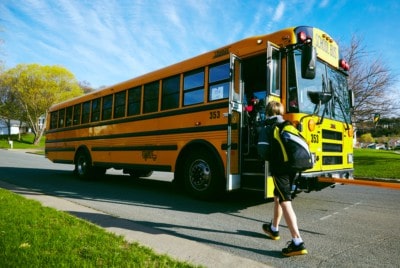
In the recent weeks following Gov. Cooper’s stay-at-home order, North Carolina homes have transformed into offices, gyms, barbershops, restaurants, movie theaters and, most notably, schools. Kitchen tables have become classrooms, and parents are grappling with the demands of educating their children during a global pandemic.
With almost 2 million students across the state being displaced from their school community and classroom resources, our students and families are most vulnerable to educational gaps as we scramble to provide equitable tools, rigorous instruction, and comprehensive support to all of our kids. In an effort to relieve concerns about grade promotion, the State Board of Education approved a universal policy prohibiting students in grades K-11 from receiving failing grades for the spring semester.
This new legislation mandates that schools promote students to the next grade level unless plans were already “well underway” to retain a student on March 13 (the last day of classes before the statewide COVID-19 closures). Both educators and policymakers are aggressively pursuing every opportunity to offer students and families relief, while providing innovative academic supports to ensure that North Carolina’s students are proficient and meet grade level requirements before returning to school this fall.
As educators and charter school leaders, we have seen our colleagues address the needs and insecurities of their students, families and communities across the state. Since early April, charter schools have converted their classrooms, cafeterias, and office spaces into community centers, food supply posts, medical shelters, and safe spaces for children regardless of enrollment at the school. And with over 100,000 students in North Carolina charter schools, charter school leaders have a dual responsibility of educating students and ensuring their basic needs are met.
But this is not new for charter school leaders or the sector. Charter schools consistently educate and provide wraparound services to students, families, and communities in need. And they do it with a leaner budget than district schools.
Charter schools received 65.4% of their funding from state appropriations in fiscal year 2018-19, and most often, charter schools are overlooked for ancillary funding that would address students’ needs outside of the classroom. In recent years, charter schools were not awarded grant or full state funding for school safety, including preventative support like school psychologists and resource officers, as well as school transportation. In rural districts, transportation can be a barrier to school attendance for students, and charter schools can incur significant costs to provide safe passage to and from school. And, this demand for school-home services has only increased in the wake of COVID-19.
Yet charter schools are poised and equipped for fast, innovative responses to the critical needs of our families and students. Within days of Cooper’s announcement, charter school leaders and advocates were able to ensure that students would still receive high-quality instruction, rigorous content, and equitable access to online and remote learning tools. As a sector, we are committed to building grade level proficiency by introducing new concepts and maintaining the same structure of the extended school day. Yet it is becoming increasingly harder to meet these needs with a fraction of the funding that traditional public schools receive.
With home and classrooms merging, parents have seen the value of their child’s teachers like never before. Due to our inclusionary classroom and school practices, we have situated ourselves to welcome families into our curriculum planning, instructional time, and school culture in innovative and collaborative ways. Charter schools are leading the effort to think outside of the box to support our students and families as they explore this unknown terrain of hybrid learning. And, charter school leaders and educators are vigilantly responding to the economic, academic, and emotional needs of their students through inclusive family engagement and cutting edge educational and social-emotional tools.
For more than 20 years, we have been the leaders in meeting the needs of students, families, and communities demanding high-quality education for all students, and we intend on providing that through this global crisis and many more years to come.





